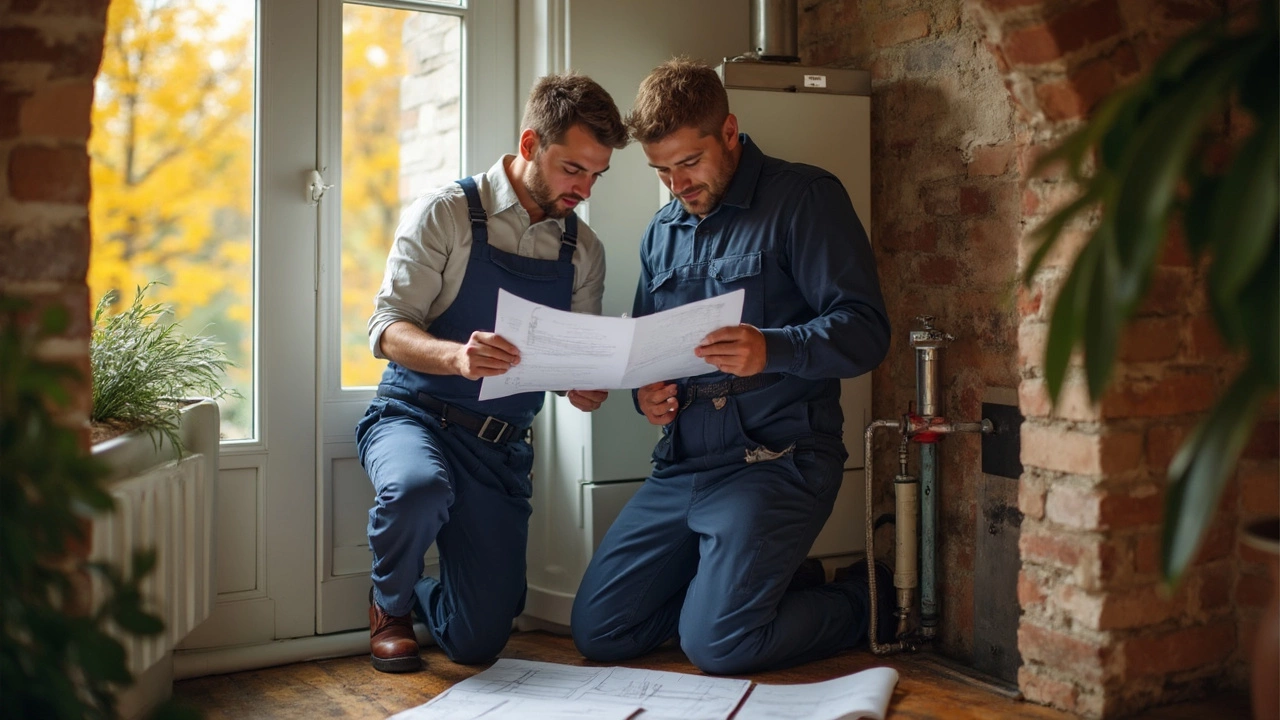Plumber vs Heating Engineer – Who Should Fix What?
Ever wondered whether you should grab a plumber or a heating engineer for that problem under the sink or the noisy boiler? It’s a common snag for homeowners, especially in South Shields where both trades are busy. The short answer: they handle different jobs, but there’s some overlap. Knowing the line helps you avoid extra costs and get the job done safely.
When to Call a Plumber
A plumber is your go‑to for anything that moves water around your house. Think leaking taps, blocked drains, faulty shower valves, or a busted pipe in the garden. They’re also the ones who install and repair toilets, sinks, and external water supplies. If your kitchen tap drips nonstop or your bathroom drains like a snail, a qualified plumber will sort it out.
In the UK, most plumbers are registered with a trade body, but they don’t need a Gas Safe licence unless they’re working on gas appliances. So if the issue is purely water‑related, you don’t need an engineer who’s licensed for gas work.
When to Call a Heating Engineer
Heating engineers specialise in anything that produces or moves heat. That includes boilers, radiators, under‑floor heating, and gas or oil central heating systems. They’re the only professionals legally allowed to work on gas boilers because they must hold a Gas Safe ID card.
Typical jobs for a heating engineer are boiler servicing, fixing a noisy pump, repairing a leaking heat exchanger, or installing a new central heating system. If you smell gas, your heating isn’t turning on, or the radiators are cold on one side, it’s time to ring a heating engineer.
Some tasks sit in the middle, like a blocked condensate pipe on a boiler. In those cases, a heating engineer will usually handle it, but a plumber can help if the blockage is in the main drainage line.
Choosing the right professional saves you from paying for unnecessary work. A plumber trying to fix a gas boiler could break safety regulations, while a heating engineer tackling a simple pipe leak might charge more than needed.
So, before you pick up the phone, ask yourself: is the problem water‑based or heat‑based? Is gas involved? Is the issue under the kitchen sink or the boiler cupboard? Quick answers point you to the right trade.
Once you’ve decided, look for credentials. For plumbers, check for City & Guilds qualifications or membership in the Chartered Institute of Plumbing and Heating Engineering. For heating engineers, a Gas Safe card is mandatory – you can verify it online by entering the licence number.
In South Shields, both trades are plentiful, but the best ones offer prompt, transparent quotes and clear explanations of the work. Ask for an itemised estimate, and don’t forget to confirm whether they’ll handle any required parts and disposal.
Bottom line: plumbers keep your water flowing, heating engineers keep your home warm. Knowing the difference helps you call the right expert, stay safe, and keep your bills in check.
